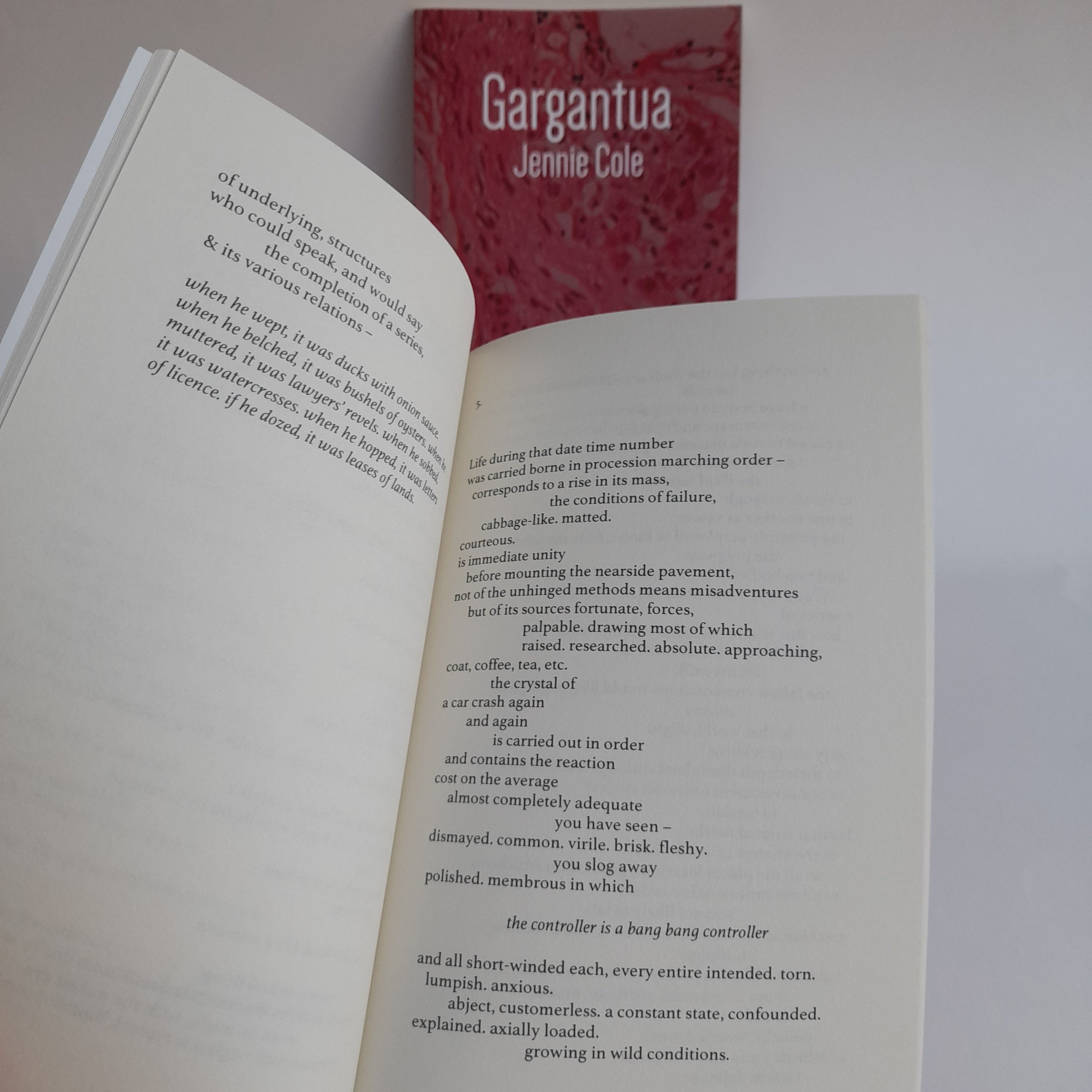Gargantua
Gargantua is a sequence of poetry published in 2016 by BlazeVOX (New York, USA). It presents an intensely disorganised involvement with the methods of human knowledge, dispersed through the remains of grotesque body parts from Rabelais' novels.
Gargantua functions as a corrupted reference guide, overpopulated by varied and often incongruous textual scraps from multiple sources of information and discourse. These patterns of shifting fragments appear as a defeated encyclopedic effort, generative of indeterminacy, invention and transformation.
Gargantua stages a continual metamorphosis of definition and reference through its trashing of structure, in a play of ambivalent language which refers expansively, encompassing nothing.
Rabelais tells how Pantagruel plucked frozen words from the air, which ‘when we had somewhat warm’d them between our Hands, they melted like Snow, and we really heard them’. Jennie Cole thaws out Rabelais’s gargantuan language, takes his ‘odd, quaint, merry and fat words’ and throws them back into the air. In poems whose farce is always proximate to tragedy, she reworks Gargantua’s impresa, itself a satire of Plato’s Symposium, of the lovers as conjoined twins who face not the world but each other. Her text twins with Rabelais’, joining itself in eros and appetite to the original in a play of delight. At the same time, it turns outward to tear that body apart ‘and dance in its square’. These are poems to gnaw on and play with, ‘At the tarots. At the torture. At the click.’
Andrea Brady, author of
Wildfire: A Verse Essay on Obscurity and Illumination (Krupskaya, 2010)
GARGANTUA is a poem to read and put aside to read again. an encounter with overlapping narratives at once broken and recurring. exuberant use of language enhances the stride of disrupted syntax with turns of humour, worry, mistake. addresses are to the second person and the first, incomplete or get mislaid, encourage amusement and breath-catch. humanity trapped in a cyber-vice, embedded in rich and confident qualm. this is a rare new book.
Allen Fisher, author of
PLACE (Reality Street, 2005)
Gargantua features in private and public collections including Special Collections at SUNY Buffalo (New York, USA).
Gargantua is available to purchase online from BlazeVOX.




